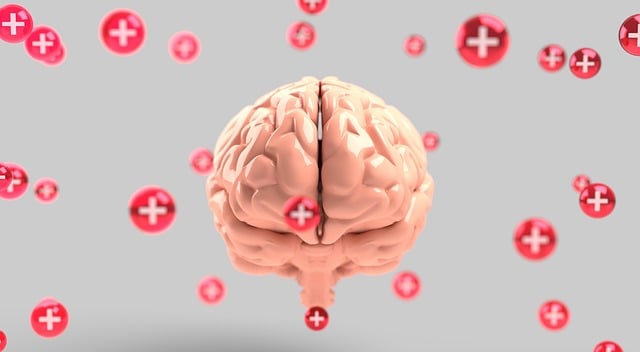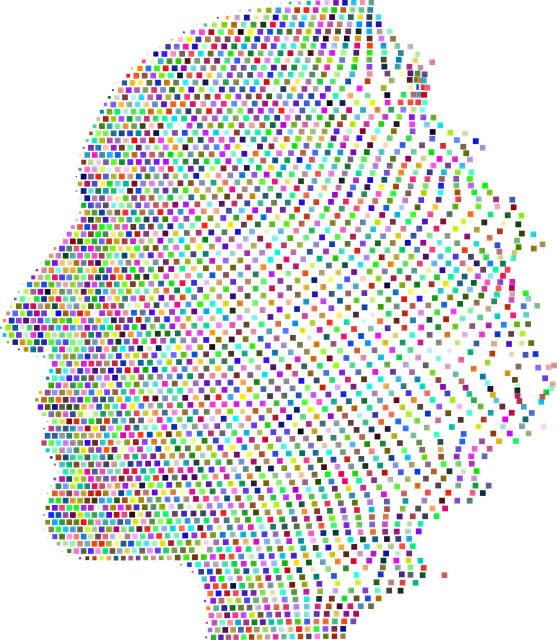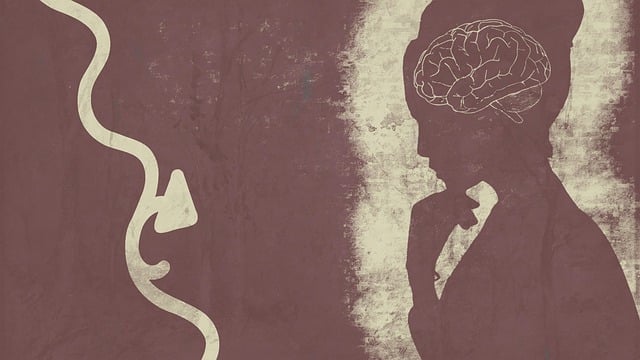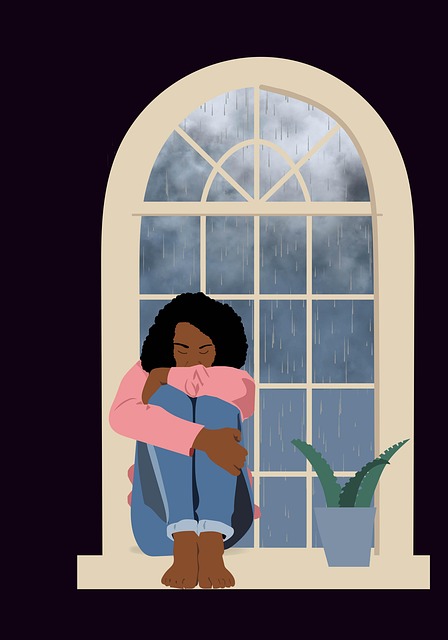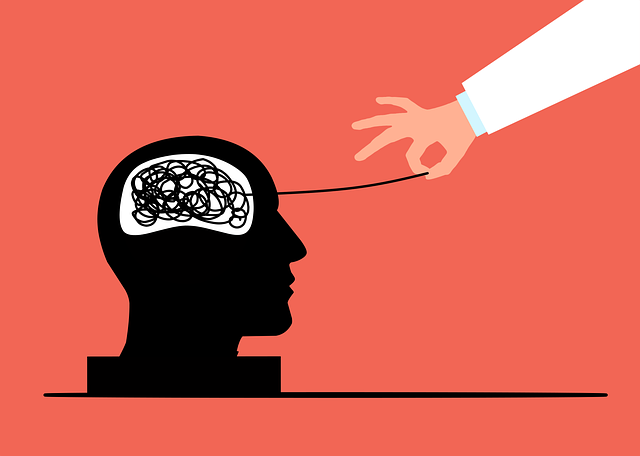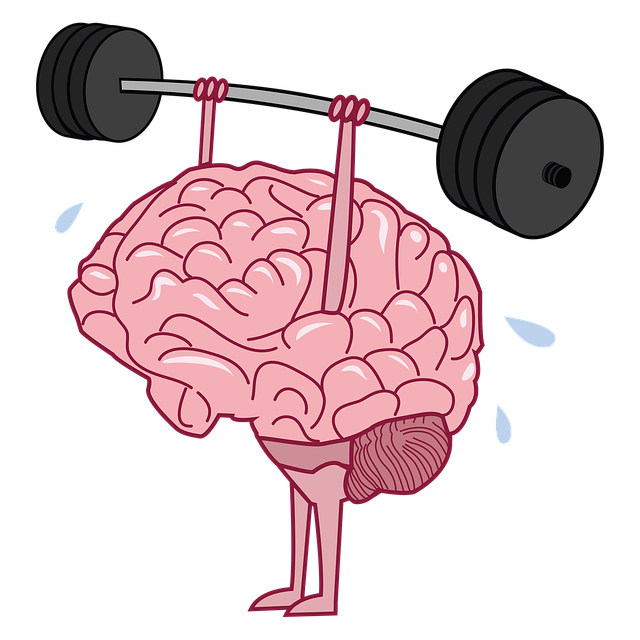In today's media, accurate and empathetic representation of mental illness is vital for a more compassionate society. Long-standing stereotypes have led to simplistic narratives, but a movement towards authentic portrayals offers hope. Strategies like exploring therapy for adults in blended families and producing mental wellness podcasts challenge stereotypes, encourage dialogue, and promote understanding. Media can significantly influence society's grasp of mental health, either perpetuating stigma or fostering empathy. Accurate representation normalizes experiences, encouraging viewers to seek therapy, especially within blended families. By showcasing diverse conditions and family dynamics, media educates audiences and fosters empathy through effective conflict resolution techniques. Key strategies for media include diverse representation, featuring therapy for adults in blended families, and integrating mental wellness practices, ultimately enhancing emotional well-being promotion.
In today’s media landscape, the representation of mental illness is a critical issue that demands attention. This article explores how media can challenge prevalent stereotypes and misconceptions surrounding mental health, highlighting the importance of diverse and accurate portrayals. We delve into the profound impact of these depictions on society, especially for adults and blended families seeking therapy. By understanding the current narrative, we propose strategies to enhance media accountability, fostering a more compassionate and informed public.
- Understanding Mental Illness Representation in Media
- Impact of Stereotypes and Misconceptions
- Benefits of Diverse and Accurate Portrayals
- Strategies for Improving Media Depictions
- The Role of Therapy for Adults and Blended Families
Understanding Mental Illness Representation in Media

In today’s media landscape, understanding mental illness representation is paramount to fostering a more compassionate and informed society. Media plays a powerful role in shaping public perception, making accurate and empathetic portrayals of mental health conditions essential. Unfortunately, stereotypes and misinformation have long plagued this aspect of storytelling, leading to nuanced challenges when depicting individuals grappling with their mental wellness. This often results in simplistic or sensationalized narratives that fail to capture the complex nature of these struggles.
However, a shift towards more authentic representations is gaining traction. By integrating communication strategies and promoting mind-over-matter principles, media creators can offer a more nuanced view of mental illness. For instance, exploring therapy for adults within blended families in a balanced light can provide valuable insights into the unique challenges they face. Furthermore, the production of mental wellness podcast series can serve as a powerful tool to educate listeners about various mental health topics while offering support and encouragement. Such initiatives not only challenge stereotypes but also encourage open dialogue, ultimately contributing to better understanding and acceptance in society.
Impact of Stereotypes and Misconceptions

The representation of mental illness in media often perpetuates harmful stereotypes and misconceptions that can significantly impact society’s understanding of these conditions. When depicted through one-dimensional characters or exaggerated narratives, mental health issues become mere plot devices rather than complex and nuanced aspects of human lives. This portrayal not only fails to offer accurate insights into various mental disorders but also contributes to the stigmatization of individuals seeking help. As a result, many people may be hesitant to acknowledge their struggles or pursue therapy for adults, especially within blended families where complex dynamic interactions can further complicate emotional well-being promotion techniques.
Consequently, media has a crucial role in shaping public perceptions and encouraging open conversations about mental health. By challenging stereotypes, the industry can foster empathy and encourage discussions on stress reduction methods and resilience building. Accurate representation can normalize the experiences of those dealing with mental illness, making them feel seen and understood. This shift is essential in encouraging individuals to seek appropriate support, whether it’s through traditional therapy or innovative blended family interventions that cater to diverse needs, ultimately enhancing emotional well-being promotion techniques on a broader scale.
Benefits of Diverse and Accurate Portrayals

Diverse and accurate representations of mental illness in media can significantly benefit society, especially when it comes to challenging stigmas and promoting understanding. By showcasing characters with various mental health struggles—be it anxiety, depression, or more complex disorders—media has the power to normalize these experiences. This normalization encourages viewers, especially those from blended families or facing similar challenges, to open up about their own battles and seek support. For instance, media portrayals can inspire adults dealing with mental health issues to initiate therapy, knowing they are not alone in their struggles.
Moreover, authentic representations can educate audiences about the complexities of mental illness, including the potential for comorbidities and unique experiences within blended families. Portraying characters who exhibit emotional intelligence and use mind-over-matter principles to manage their conditions can be empowering. Additionally, media can highlight effective conflict resolution techniques that these characters employ, offering viewers practical insights into navigating challenging situations while promoting empathy and a more nuanced understanding of mental health.
Strategies for Improving Media Depictions

Media has a significant impact on shaping public perception of mental illness. To challenge negative stereotypes and promote understanding, media outlets can adopt several strategies. Firstly, they can ensure diverse and accurate representation of mental health issues across various platforms. This includes showcasing characters from blended families dealing with therapy for adults, thereby normalizing experiences that many people share. By featuring stories that reflect the complexities of modern life, media can foster empathy and encourage positive thinking among viewers.
Additionally, integrating mental wellness journaling exercises into entertainment content can provide a creative outlet for audiences to engage with their own thoughts and feelings. This approach not only promotes self-care but also demonstrates healthy coping mechanisms as portrayed by fictional characters. Moreover, providing guidance on risk management planning through informative segments or articles targeted at mental health professionals can contribute to better support systems in the industry, ensuring safe practices and enhanced patient care.
The Role of Therapy for Adults and Blended Families

For adults struggling with mental illness, therapy plays a pivotal role in their journey towards recovery and improved quality of life. Professional counseling offers a safe space for individuals to explore complex emotions, process traumatic experiences, and develop coping strategies tailored to their unique needs. Many adult clients find solace in evidence-based therapeutic approaches like cognitive-behavioral therapy (CBT), dialectical behavior therapy (DBT), or trauma-focused therapies, which have proven effective in managing conditions such as depression, anxiety disorders, post-traumatic stress disorder (PTSD), and bipolar disorder.
In the context of blended families—those with stepparents, half-siblings, or a mix of biological and adopted children—therapy serves as a powerful tool for fostering understanding, empathy, and connection. Blended family therapy sessions can help navigate complex dynamics, address emotional needs, and promote open communication. By incorporating strategies from the popular Mental Wellness Podcast Series Production, which often features expert insights on building empathy and crisis intervention guidance, therapists can facilitate meaningful discussions around step-parenting challenges, sibling rivalry, and the impact of past traumas. This holistic approach ensures that every member of the family receives the support they need to thrive in an environment characterized by love, acceptance, and mental wellness.
Mental illness representation in media has a profound impact on public perception. By challenging stereotypes and misconceptions through diverse, accurate portrayals, we can foster greater understanding and empathy. Implementing strategies for improvement, such as consulting with mental health professionals and individuals with lived experiences, is crucial. Additionally, therapy for adults and blended families plays a vital role in navigating these representations, providing support to navigate the complexities of media narratives and real-life challenges. Ultimately, these efforts contribute to a more inclusive and nuanced depiction of mental health, enhancing societal comprehension and care.


